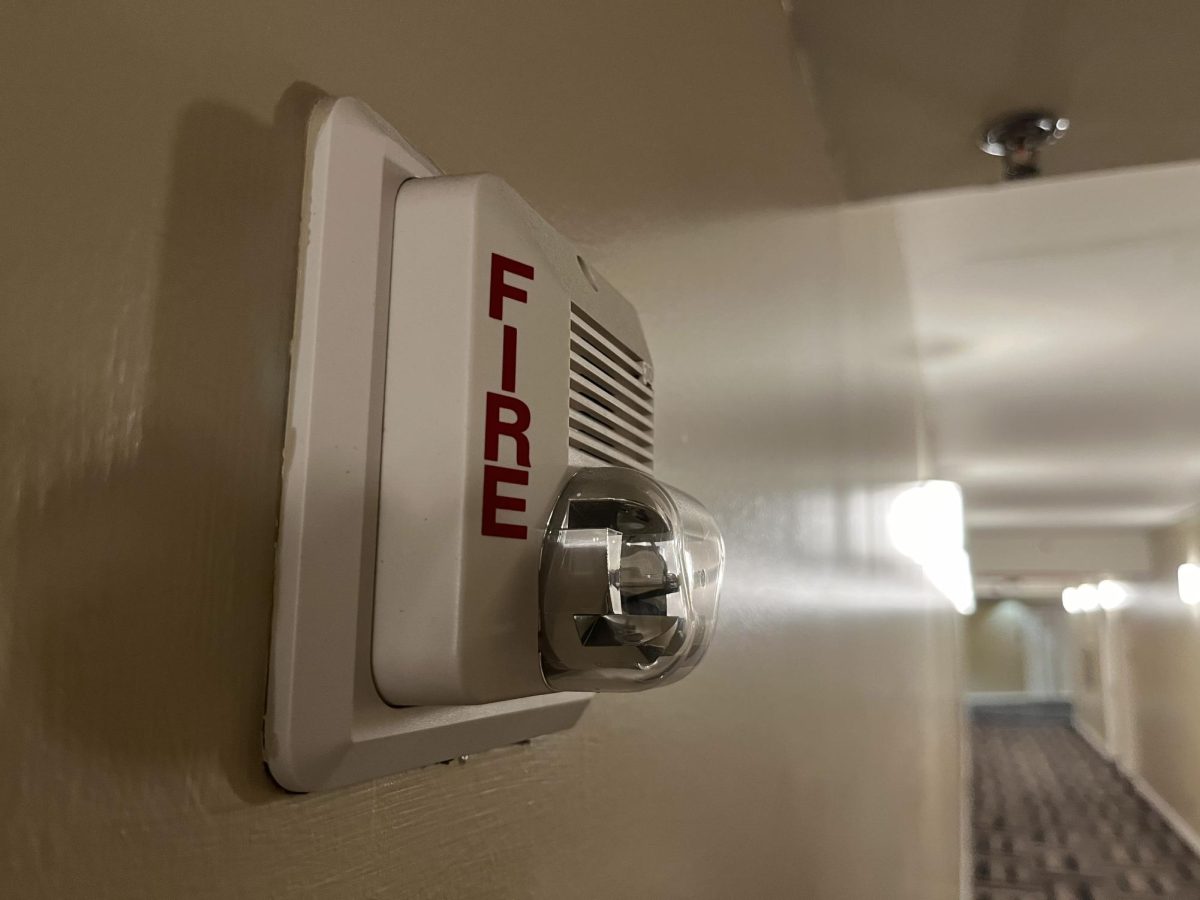Residents of GrandMarc at Westberry Place have been complaining for years about the fire alarms sounding too frequently, but the consequences of apathy are high.
Former TCU economics major Reed Bennett remembers living in GrandMarc during the 2020-2021 school year, and said the fire alarms would go off “all the time” in individual residences from cooking steam and set off the alarms on the whole floor.
Now, the shrill and incessant beeping of the fire alarms either sound in the individual residences or for the whole building, depending on the location of the fire. In recent years, the alarms have been sounding less, Adrian Andrews, the vice chancellor for public safety, said.
Oreo Adebanjo, a resident assistant (RA) at GrandMarc for two years, said the alarms are frustrating and annoying.
“I would say that the fire alarms go off significantly more times than in other dorms,” Adebanjo, a junior criminal justice major and sociology minor, said. “However, this is only because of how the alarm system is set up. Whenever there is a problem within GrandMarc like a burst pipe, it triggers the alarm for the whole building.”
Likely because of multiple similarly-caused false alarms, many residents seem reluctant to leave the building when the alarm sounds. During this semester’s fire drill, several GrandMarc residents did not leave until they were found during RA inspections.
Andrews, standing in the parking lot and waving his purple TCU flag, emphasized the importance of evacuating the building efficiently, whether students see an actual fire or not.
Andrews remembers a 24-year-old incident, which revealed why he is so conscientious about university fire safety.
At Seton Hall University, the former workplace of Craig Allen, TCU’s executive director of housing and fraternity and sorority life, a fire in a freshman residence hall killed three and injured 58.
“Before this incident, that building had suffered so many alarms–it was ridiculous,” Andrews said. “They would usually go off early in the mornings and this was early in the morning and it ended up killing people.”
Andrews said many of these casualties could have been avoided if residents had not ignored the alarm.

Andrews and the public safety team have created evacuation plans and rally points that he hopes residents will follow earnestly, despite the alarms sounding around three to four times a semester in recent years.
GrandMarc has always been part of TCU’s safety concerns, but more so now with the building acquisition. Andrews said prior to next fall semester, alarm systems consistent across all TCU dorms will be installed in GrandMarc, capable of sounding the three alarms found in the “L.E.S.S. is More” plan.
In the meantime GrandMarc continues to operate with the standard fire alarm in place, but Andrews believes the building is safe. In addition to the drills that TCU does, the university also has a good relationship with the Fort Worth Fire Department. Andrews said that one of the firemen told him that when an alarm goes off at a TCU residence hall, the fire department sends a few more trucks than normal because, “everybody wants to save TCU.”
Andrews and Adebanjo stressed that, barring circuit issues and burst pipes, the frequency of the alarms will continue to diminish, as residents are more careful to avoid setting them off. Either way, they highly encourage residents to evacuate every time the alarm sounds.
“Those alarms are a pain in the butt, they are annoying, they disrupt your day–I get it, but they are there to save your lives,” Andrews said.










